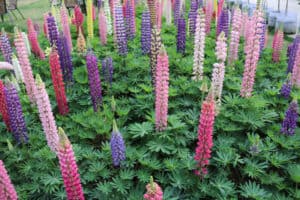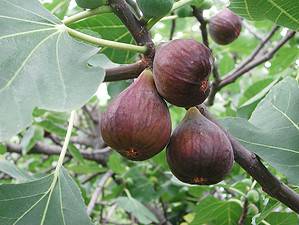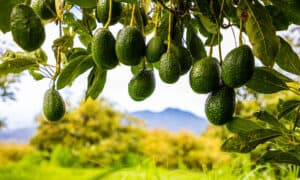Gardening in Pennsylvania can be an exciting experience for both novice and experienced gardeners. With Pennsylvania’s diverse climate and unique growing conditions, the Keystone State offers many opportunities to cultivate a beautiful garden. This guide will explore the ins and outs of gardening in Pennsylvania, including the best practices for planting and maintaining a flourishing garden.
Understanding Pennsylvania’s Climate
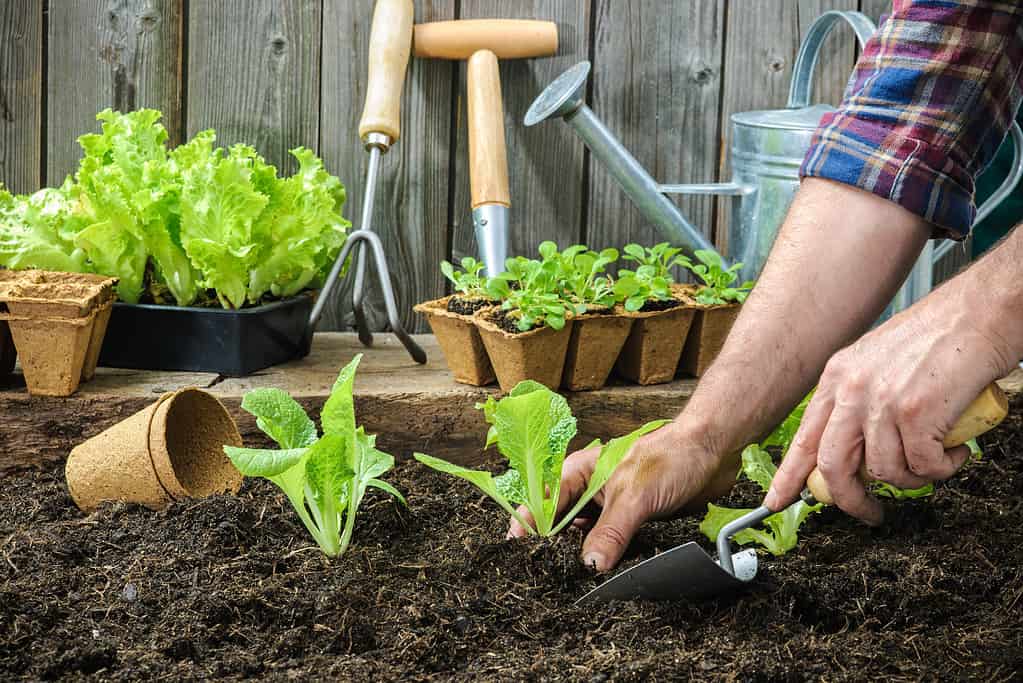
Picking plants appropriate to Pennsylvania’s climate is essential for a prosperous garden.
©iStock.com/AlexRaths
Pennsylvania’s climate is known for its pleasant summers and chilly winters, making it a perfect place to explore the changing seasons. Based on USDA Plant Hardiness Zones, which range from 5-7 in state lines, average temperatures tend to span between -20 degrees Fahrenheit and 0 degrees Fahrenheit every year.
To ensure your garden grows with vibrant plants suited for the Pennsylvanian atmosphere, understand your local zone before anything else.
- Spring – The season of renewal; fluctuating temperatures and increased precipitation characterize spring in Pennsylvania. Gardeners should use the cooler weather to plant cool-season vegetables like lettuce and spinach and sow seeds for warm-season crops, like tomatoes and peppers, indoors.
- Summer – As temperatures rise in the summer, so does the humidity, creating a perfect environment for pests and diseases. Be vigilant about watering, pruning, and pest control to maintain a healthy garden.
- Fall – Cooler temperatures and shorter days signal the end of the growing season. Use the autumn season to harvest crops, prepare your garden for winter, and plant spring-blooming bulbs.
- Winter – Pennsylvania winters can be harsh, with freezing temperatures and snowfall. Protect your plants by applying mulch and other insulating materials, and use this time to plan your garden for the coming year.
Choosing the Right Plants for Pennsylvania’s Climate
Picking plants appropriate to Pennsylvania’s climate is essential for a prosperous garden. Look at some ideal tomatoes, flowers, and peas varieties for the Keystone State.
Tomatoes
- Brandywine: An heirloom variety is known for its rich, full flavor and large fruit size.
- Celebrity: A versatile and disease-resistant variety, Celebrity tomatoes are perfect for slicing and canning.
- Early Girl: A compact plant that produces fruit early in the season, making it an excellent choice for gardeners with a short growing season.
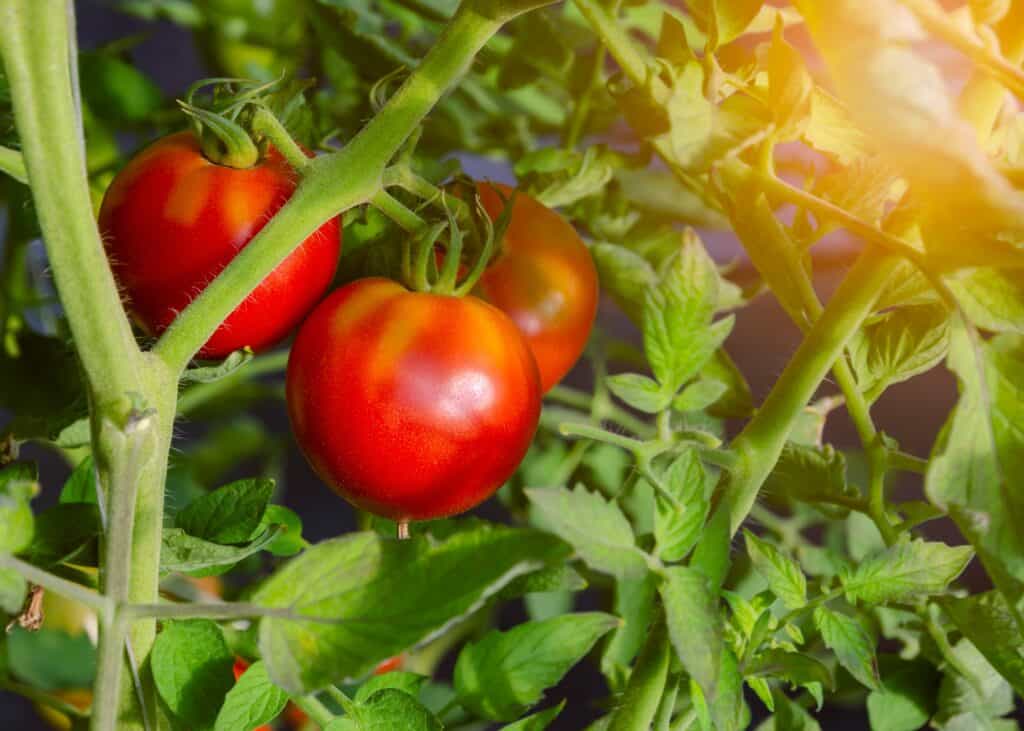
Celebrity tomatoes are a great option for Pennsylvania’s climate.
©nicepix/Shutterstock.com
Flowers
A diverse selection of flowers can add color and beauty to your Pennsylvania garden. Consider these varieties:
- Coneflower (Echinacea): A native perennial, coneflowers are drought-tolerant and attract pollinators like butterflies and bees.
- Black-eyed Susan (Rudbeckia): This hardy perennial produces yellow flowers with a dark center and is well-suited to Pennsylvania’s climate.
- Pansy (Viola): These cool-season annuals offer a burst of color in early spring and can withstand light frosts.
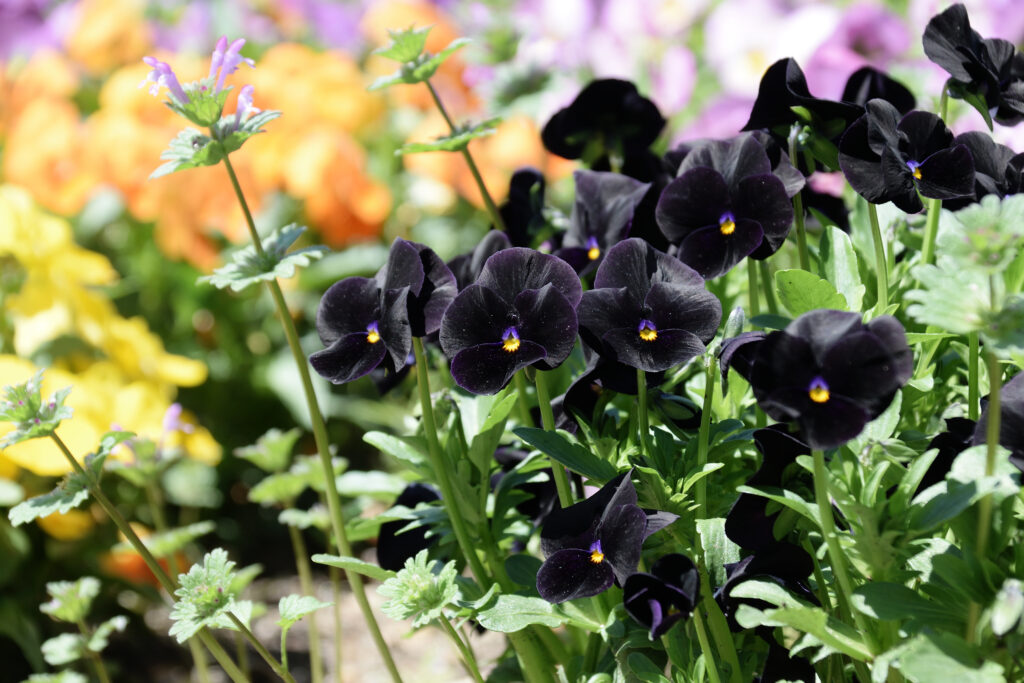
Pansies can withstand light frosts and provide your garden with early-spring colors.
©Ken Kojima/Shutterstock.com
Peas
Peas thrive in cooler temperatures, making them an ideal choice for early spring planting in Pennsylvania. Recommended varieties include:
- Sugar Snap: A delightful and crunchy edible-pod pea for fresh eating or stir-frying.
- Wando: This shelling pea variety is heat-tolerant and can be planted later in the season.
- Snowbird: A dwarf snow pea variety that produces tender, flat pods and requires minimal staking.
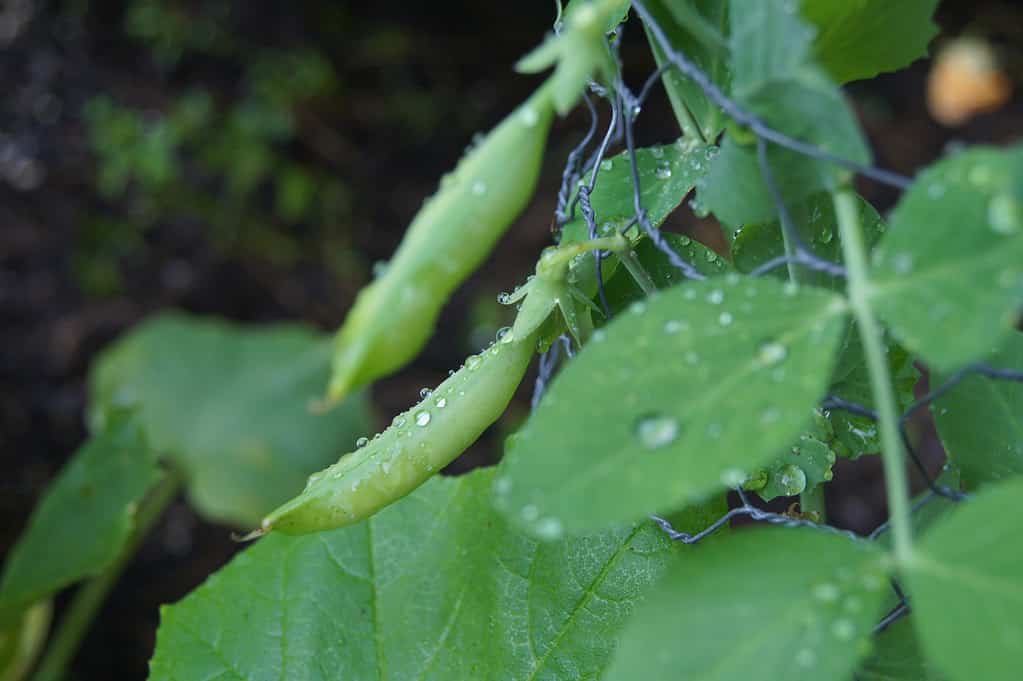
Peas thrive in cooler temperatures, making them an ideal choice for early spring planting in Pennsylvania.
©iStock.com/PierceHSmith
Potatoes
Potatoes are a versatile and rewarding crop to grow in Pennsylvania. Some recommended varieties for Pennsylvania include planting potatoes in early spring, as soon as the soil can be worked.
- Yukon Gold: Known for its buttery flavor and smooth texture, Yukon Gold potatoes are excellent for boiling, mashing, and roasting.
- Kennebec: A reliable, high-yielding variety resistant to many common diseases and produces large, white-fleshed potatoes.
- Red Pontiac: With its beautiful red skin and white flesh, this variety is perfect for boiling and mashing.
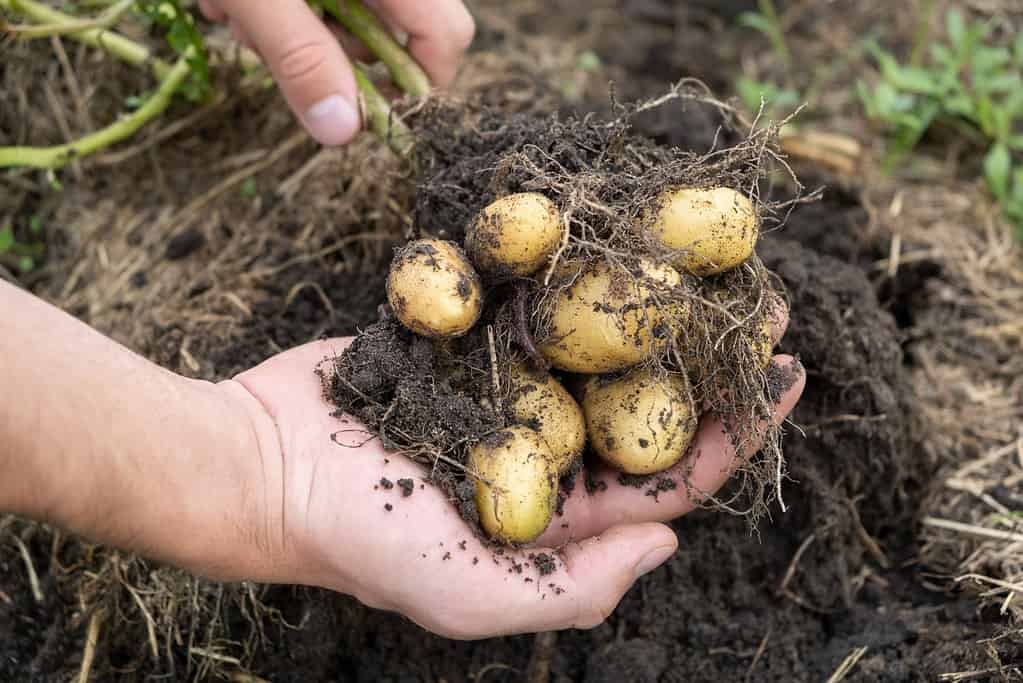
Planting potatoes in your garden can be done in early spring, as soon as the soil can be worked.
©ArieStudio/Shutterstock.com
Leafy Greens
Leafy greens like kale, Swiss chard, and collard are well-suited for Pennsylvania’s climate and can be planted in early spring and again in late summer for a fall harvest. These nutritious vegetables are versatile in the kitchen and can be used in salads, sautés, and smoothies.
Brassicas
Cool-season crops like broccoli, cauliflower, and cabbage are excellent choices for a Pennsylvania garden. Start seeds indoors and transplant seedlings outdoors in early spring or late summer. Some popular varieties include:
- Broccoli: A heat-tolerant variety that produces large, dark green heads.
- Snow Crown (cauliflower): This early-maturing variety makes tender, white heads.
- Late Flat Dutch (cabbage): A reliable and high-yielding variety with large, tightly-packed heads.
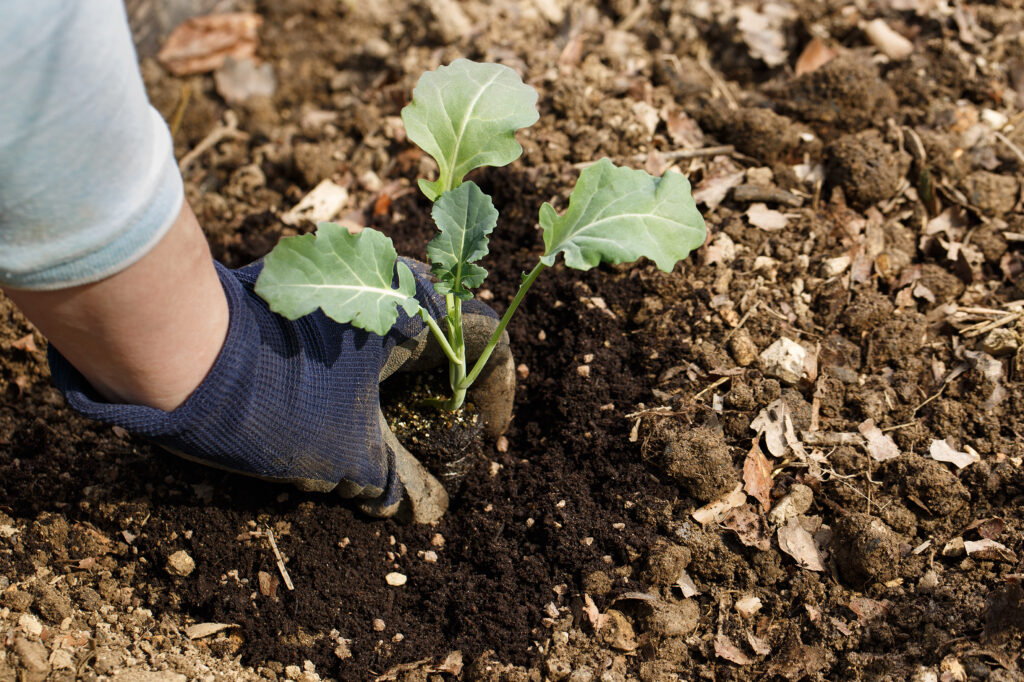
Cool-season crops like broccoli can be started indoors as seeds and transplanted into your garden in early spring.
©zlikovec/Shutterstock.com
Root Vegetables
Vegetables like carrots, beets, and turnips grow well in Pennsylvania’s cool spring and fall temperatures. Sow seeds directly into well-prepared, loose soil to ensure proper root development. Consider these varieties:
- Carrot: A sweet, tender, and virtually coreless carrot variety perfect for fresh eating or cooking.
- Detroit Dark Red (beet): A popular beet variety known for its deep red color and sweet, earthy flavor.
- Purple Top White Globe (turnip): This turnip variety features purple-tinged tops and creamy white flesh, suitable for cooking and pickling.
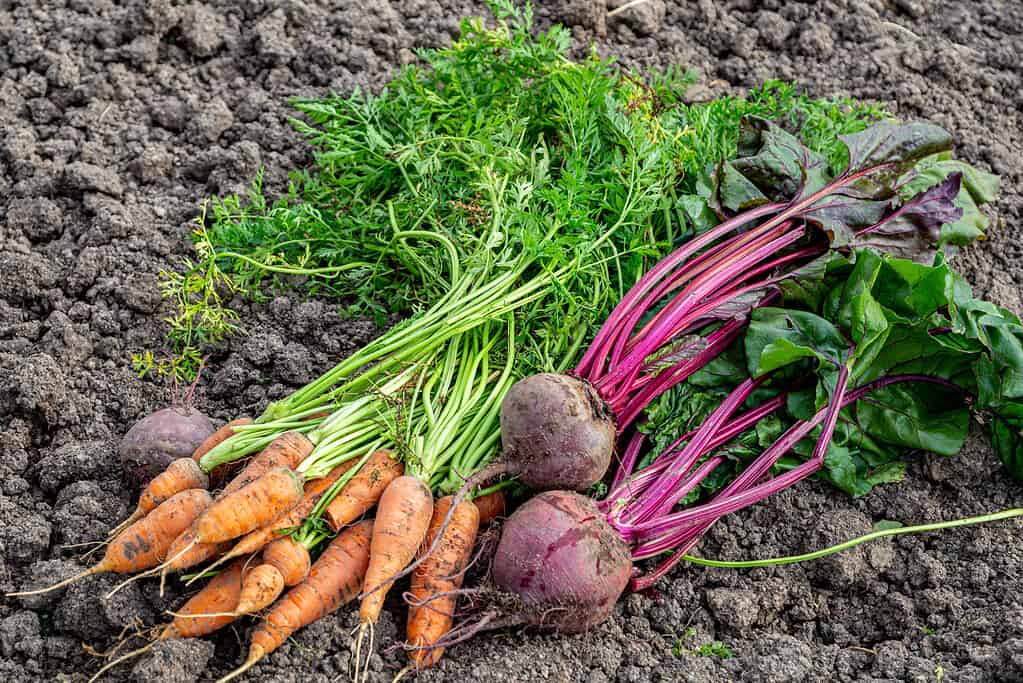
Vegetables like carrots and beets grow well in Pennsylvania’s cool spring and fall temperatures.
©iStock.com/Olga Seifutdinova
Herbs
Many culinary herbs thrive in Pennsylvania’s climate, including basil, parsley, cilantro, dill, and mint. Consider planting perennial herbs like chives, sage, and thyme for a continuous harvest throughout the growing season. Plant herbs in well-draining soil and provide them with adequate sunlight.
Gardening Tips for Success
To ensure a thriving garden in Pennsylvania, follow these gardening tips:
Prepare your soil
Pennsylvania soils can vary from sandy to clay-heavy. Because of the soil conditions, you should test your soil and amend it with organic matter, such as compost or well-aged manure, to improve drainage and fertility. A pH test will help you determine if you need to adjust the acidity or alkalinity of your soil to suit your plants.
Plant at the right time
You should time the last frost dates in your area and plan your planting schedule accordingly. Testing is essential because cool-season crops can be produced in early spring, while warm-season crops should be planted after the risk of frost has passed.
Water wisely
Pennsylvania’s climate can be quite variable, with periods of heavy rain followed by dry spells. During dry spells, water your plants consistently. Invest in a rain barrel to collect water for your garden, and consider installing a drip irrigation system to save water and ensure consistent moisture.
Use companion planting
Planting certain plants together can help improve the health and productivity of your garden. For example, marigolds can help repel pests, while beans and peas can fix nitrogen in the soil, benefiting other plants.
Practice crop rotation
Rotate your crops yearly to reduce the risk of soil-borne diseases and maintain soil fertility. Additionally, you can avoid planting the same family of plants in the same area for at least three years.
Maintain your garden
Regular maintenance, including weeding, pruning, and deadheading, will keep your garden looking its best and help prevent pest and disease issues. Mulch your garden beds to suppress weeds and retain moisture.
Protect against pests and diseases
To protect your garden, being vigilant about common Pennsylvania garden pests like Japanese beetles, aphids, and slugs is crucial. Additionally, monitor your plants for signs of disease and take prompt action to prevent further spread. Some effective strategies for protecting your garden include employing organic pest control methods. For instance, introducing beneficial insects, utilizing insecticidal soaps, and hand-picking pests can significantly reduce the risk of infestations and diseases.
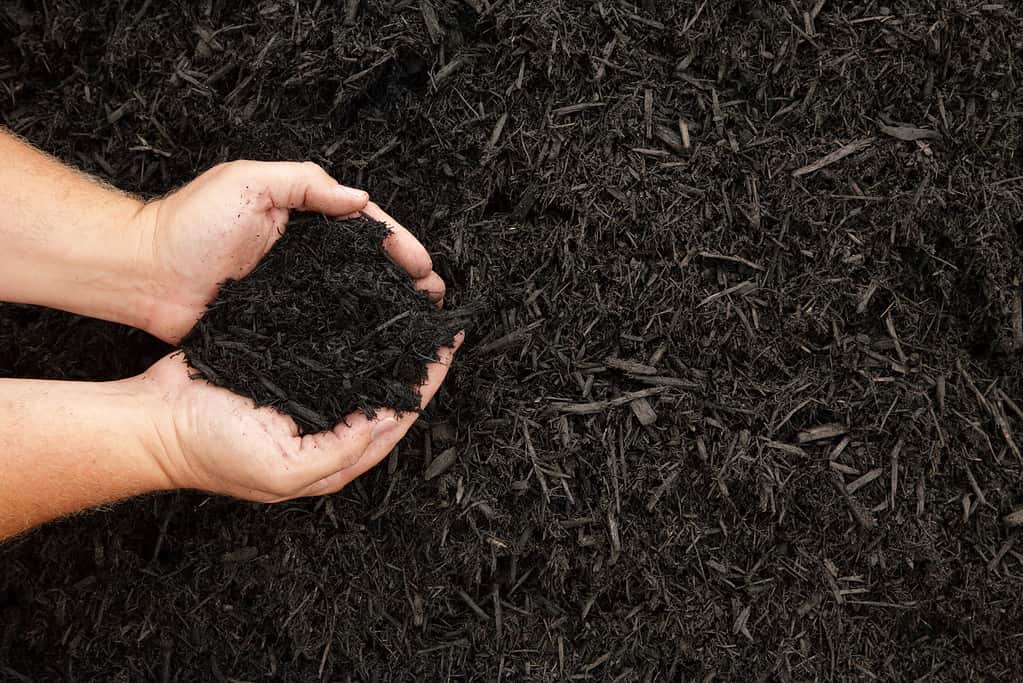
Adding mulch to your garden can help to suppress weeds and retain moisture.
©iStock.com/witmerphotography
Conclusion
Cultivating a successful garden in the Keystone State is within reach if you understand Pennsylvania’s distinct climate and choose suitable plants. With this comprehensive guide, you’ll know to create an incredible oasis of beauty, sustenance, and pleasure.
The photo featured at the top of this post is © iStock.com/Zbynek Pospisil
Thank you for reading! Have some feedback for us? Contact the AZ Animals editorial team.



